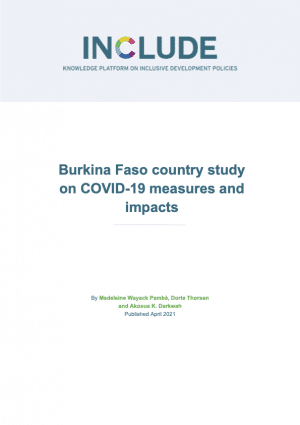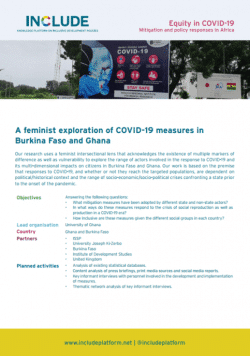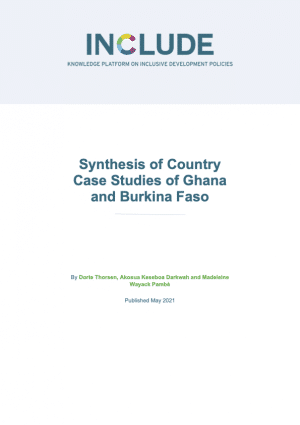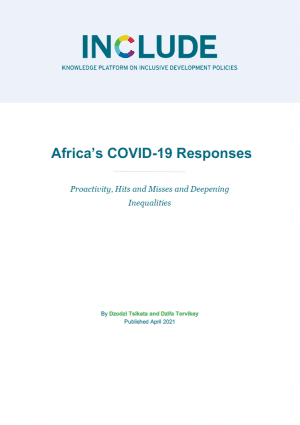
The Covid-19 pandemic emerged in Burkina Faso at the time of a difficult economic, political and social context, in a situation exacerbated by the security crisis that the country has been experiencing since 2016. The pandemic has added further strain to the country’s resources.This study analyses the inclusiveness of the public health strategies adopted and the measures taken to combat the Covid-19 pandemic in Burkina Faso. More specifically, it examines whether and how the different stakeholders were involved in defining and implementing the proposed responses, as well as the multidimensional aspects of the consequences of these responses on the different groups of vulnerable populations.
The analysis is based on a Covid-focused review of the online press, government policy documents and reports published online by state and non-state actors and it seeks to answer questions about how markers of difference and vulnerability between population sub-groups have been taken into account in responses to the Covid-19 pandemic in Burkina Faso.


